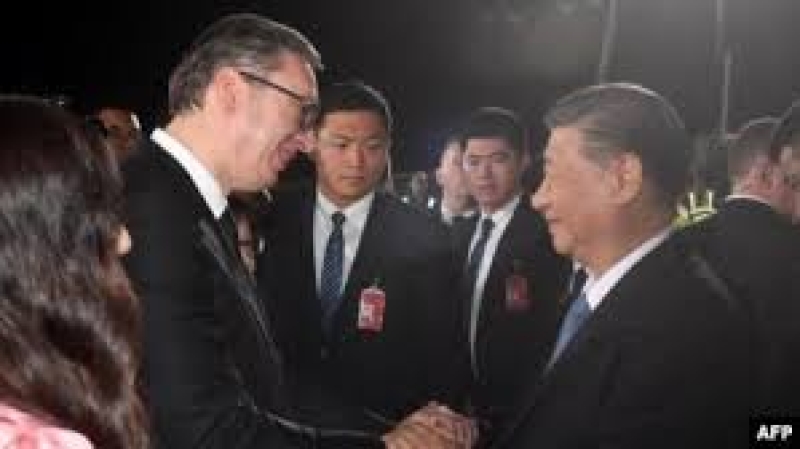- Nation Votes Tomorrow in 13th Poll, Referendum |
- Key in your hands, use it wisely: Prof Yunus tells voters |
- Yunus Urges Voters to Shape a ‘New Bangladesh’ |
- Bangladesh Polls: Campaign Ends as Voters Weigh Pledges |
- Bangladesh Heads to First Gen Z-Driven Competitive Poll |
Xi Jinping's visits to Serbia, Hungary reflect China-EU tensions

After “frank” discussions in France where President Emmanuel Macron pressed him on Russia’s war in Ukraine, trade disputes and human rights, China’s President Xi Jinping heads Tuesday to meet more pro-Beijing governments in Serbia and Hungary.
Both countries have developed close ties with China and Russia under Serbian President Aleksandar Vučić and Hungarian Prime Minister Viktor Orbán.
China has been investing billions in both countries, with projects ranging from factories and mining to electric vehicles and a railway to connect their capitals — Belgrade and Budapest, reports VOA.
China is both Hungary and Serbia’s largest trading partner outside the European Union.
Xi arrives in Serbia for the 25th anniversary of the NATO bombing of the Chinese Embassy in Belgrade in 1999. The U.S. apologized for what it called a “mistaken” bombing that killed three Chinese nationals and injured 20.
Xi is expected to pay tribute to those killed at the site, which was turned into a Chinese cultural center.
Ja Ian Chong, associate professor of political science at the National University of Singapore, told VOA, "Xi will probably try to stress the PRC's [People's Republic of China] role in supporting stability and maybe suggest but not openly accuse the United States of being destabilizing and unnecessarily aggressive.”
But analysts say Xi’s visits to Serbia and Hungary also reflect Beijing's limitations amid the ups and downs in China-EU relations.
Francesco Sisci, an Italian sinologist, told VOA, “It's interesting that ... China didn't manage to secure more significant countries for Xi's visit to Europe. It seems that China is having greater difficulties in its ties with European countries, and it has good ties with two governments who have also good ties with Moscow. That is — Europe is moving faster away from China as it sees it too close to Moscow."
Like Beijing, both Serbia and Hungary have spoken against sanctions by the U.S. and EU on Moscow over Russia's full-scale invasion of Ukraine in 2022, though Hungary has voted for them.
Orban, despite leading a nation that is both a member of the EU and NATO, has friendly relations with Russia’s President Vladimir Putin and held talks with him on the sidelines of a forum in Beijing in October. Hungary buys most of its fuel from Russia and, unlike other EU members, has shown no interest in stopping. Serbia is a candidate to join the EU.
During the third Belt and Road International Cooperation Summit Forum, Xi also met with Orbán, the only EU leader who attended.
Dragana Mitrovic, a political science professor at the University of Belgrade, says those relations have sparked tensions with Hungary’s partners in the West.
"In this moment of tense geopolitical competition and measuring economic and overall cooperation by strategic gains and losses, Hungary will continue to be under pressure from Brussels and Washington when pursuing cooperation with China," she said to VOA.
While Hungary has benefited from billions in EU aid, Mitrovic notes Hungary is also one of the world’s biggest recipients of Chinese foreign investment.
China’s BYD, which last year sold more electric vehicles than Tesla, plans to build its first plant in Europe in Hungary. By building cars inside the EU, Beijing could avoid the threat of tariffs on electric cars imported from China.

